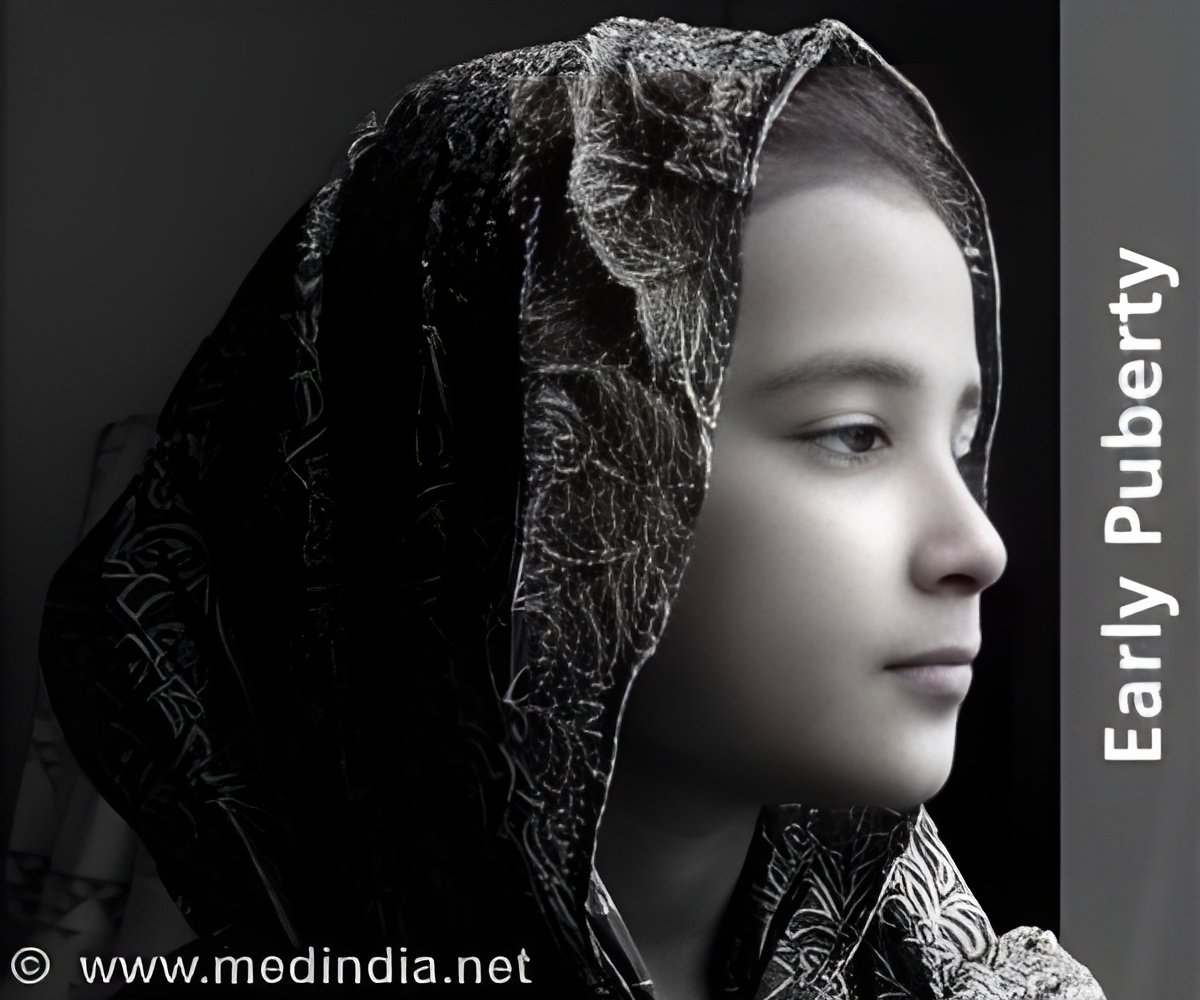When young people, especially girls, undergo puberty it shapes their sense of self as well as their social relationships and education.

‘When a girl attains puberty, they are being treated as more mature due to physical changes, while their emotional development takes time to catch up.’





Previous research has indicated girls who reach sexual maturity earlier may be more prone to developing depression and, in low and middle income countries, more vulnerable to early pregnancy and negative sexual health outcomes, but whether it affects how long they spend in education was unclear. Studies trying to pick apart the link between the age at which a girl has her first period -- called menarche -- and how long they spend in education can be muddied by numerous factors, including obesity, socio-economic status, and parental education level.
Now, a team led by researchers at Imperial College London has tried to untangle this complex relationship by turning to genetic markers as a proxy for the age of first period. Using a statistical method called Mendelian randomization, they attempted to remove the influence of external factors such as diet and lifestyle -- which are known to be associated with both early menarche and less time in education.
By using genetic markers known to be associated with menarche, the researchers have revealed an impact of the age of first menstruation on the amount of time spent in education.
"It's well established that the length of time that someone spends in education can have repercussions later on in life," said Dr Dipender Gill, a Wellcome Trust Clinical Research Fellow at Imperial and lead author of the study. "It is associated with socio-economic status, rates of depression, risk-taking behaviour and a range of health outcomes, so clearly time spent in education is important. This study identifies that the age of puberty may have an effect on the length of time that women spend in education."
Advertisement
The effects of these markers on time spent in education were then estimated using a separate dataset including more than 118,000 women over the age of 30 and of European descent, where participants had provided the number of years spent in education.
Advertisement
According to the researchers, one possible explanation for the observed effect could be due to young women being treated as more mature due to physical changes, while their emotional development takes time to catch up. Such a delay between physical and mental maturation may give rise to factors which lead to less time spent in education, such as increased risk-taking behaviour, or a failure to adapt psychologically to changes in how they are treated.
The group reports that the data could be skewed by women self-reporting the age they had their first period. In addition, the extended age ranges of women in the study group -- born over nine decades (1901 to 1989) -- overlaps with societal changes and the establishment of educational programmes. They add that the findings cannot be used to predict how long a young woman might stay in education, based on her age at her first period.
According to the researchers, now that a link has been established, the next step is to work out why age of menarche is having such an effect.
"Once we understand the mechanism, it might give us the opportunity address the discrepancies that we're seeing," explained Dr Gill.
"Going through puberty is associated with various physiological and psychological changes," he adds. "It might be that girls who go through puberty earlier are less well-equipped to deal with the pressures. They may be suffering as a result and this might be manifest in the length of time that they spend in school."
'Age at menarche and time spent in education: a Mendelian Randomization study' by Gill, D. et al, is published in the journal Behavior Genetics.
Source-Eurekalert










